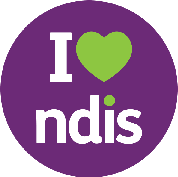The National Disability Insurance Scheme (NDIS) is Australia’s national support system for people with disability. If you’re wondering how NDIS funding in NSW works and what you’re entitled to, this guide explains it clearly. Its purpose is to help people with disability gain more independence, spend time with family and friends, and achieve their life goals. The NDIS funds approved disability-related supports so that participants can live more fulfilling lives. Yet many participants don’t use all the supports available – in fact, fewer than 70% of funded NDIS supports are typically used by people. This often happens simply because people aren’t aware of everything their plan can cover.
Our goal in this article is to explain how NDIS funding works in NSW, what budgets it includes, and how to use your funds effectively. (For examples of lesser-known supports, check out Centre of Hope’s blog on Top NDIS Services You Didn’t Know You Could Access.)
What Is NDIS Funding?
NDIS funding is the money allocated in your NDIS plan to purchase supports that relate to your disability. It is not cash in hand; instead, it appears as budget amounts in your plan that you use to pay for services and items approved by the NDIS. The funding is based on what is considered “reasonable and necessary” for you to meet your goals.
During your planning meeting with the NDIS (or their partner like a Local Area Coordinator), you will discuss your needs, your family supports, and your life goals. The planner then decides how much funding to include in your plan for various supports. The NDIS only funds items related to your disability, so everyday living costs (like rent, groceries, or medical treatments) are paid through other means.
Importantly, each NDIS plan covers a fixed period. Traditionally, most plans cover 12 months of support. Your funding must last for the full plan year, so it’s wise to budget accordingly. In 2025, the NDIS also started introducing shorter funding increments (like quarterly payments) to help participants manage their spending more easily.
The key point is: your plan has a set total budget for the year, and you should use it to buy the supports you need. You can learn more about how the NDIS works by visiting the official NDIS website.
Types of NDIS Budgets
An NDIS plan typically splits your funding into three support budgets. Knowing these will help you decide where to spend each part of your funding:
Core Supports
This is the most flexible budget. It covers everyday disability supports and services like personal care, transport, social and community activities, and consumable items (for example, continence products or everyday aids). For instance, your Core budget could pay for a support worker to help you get dressed or for taxi fares if you can’t use public transport.
You can generally mix and match Core funds among any Core supports.
Capacity Building
This budget helps you build skills and independence over time. It includes things like therapy, coaching, training, employment support, and other services that support personal growth. For example, Capacity Building funds might pay for speech therapy, a course that helps you learn job skills, or a behaviour support specialist.
Importantly, NDIS Support Coordination (professional help to manage your plan) is funded out of the Capacity Building budget if your plan includes it. Unlike Core supports, Capacity Building funds are allocated to specific categories and cannot be transferred between them.
Capital Supports
This budget is for big, one-time items or investments. It covers things like assistive technology (wheelchairs, hearing aids, communication devices) and home or vehicle modifications. For example, if you need a custom wheelchair or want to install a bathroom handrail, those would come from your Capital supports budget.
Capital funds must be used exactly as specified.
For more details, the NDIS explains each support budget in plain language on its site.
How Much NDIS Funding in NSW Can You Receive?
There is no one-size-fits-all amount in NDIS plans – funding is completely individualized. Your plan’s total budget will depend on your disability, age, goals, and personal situation. The more complex your needs or goals, the more funding may be included.
During your planning meeting, you and your planner (or Local Area Coordinator) discuss what supports you need now and in the future. This helps determine how much to budget in each category.
On average, participants in NSW who are not in specialised housing have about $80,000 per year in their plan (though this varies widely). However, remember that your budget is unique to you. It will be exactly what the NDIS deems “reasonable and necessary” for your goals.
Being well-prepared helps ensure your plan covers the right amount and types of support. For guidance, check out our blog on 10 Practical Tips to Prepare for Your First NDIS Planning Meeting. The NDIS support budgets guide explains each funding category in more detail.
How Support Coordinators Help You Use Your Funding
Your NDIS plan might include a funded Support Coordinator if your situation is complex or you need help putting your plan into action. A Support Coordinator is a professional who helps you make the most of your plan funding. They act like a guide or coach: explaining your plan in plain language, linking you with the right service providers, and making sure all your supports work well together.
Support Coordination is funded from your Capacity Building budget. If you have it, the NDIS pays the coordinator directly from your plan funds. Support Coordinators can also teach you skills, so that over time you become better at managing your own plan. They help resolve issues and advocate for you when needed.
In more complex cases, your plan might include Specialist Support Coordination NSW, which is provided by professionals with expertise in managing high-level or crisis situations.
For more guidance, check out:
- Understanding NDIS Support Coordination: What It Is and Why It Matters
- 5 Essential Questions to Ask When Choosing Your NDIS Support Coordinator
Common Mistakes to Avoid
Even with the best plans, it’s easy to make errors that waste or jeopardize your funding. Here are some common pitfalls:
Overspending
Using up all your funding too early can be a big problem. If you suddenly need urgent support late in the year and your funds are gone, you’ll need to request a variation or review. Keep track of your spending against each budget category and plan ahead.
Underspending
Leaving a lot of your plan unspent might seem safe, but it can backfire. If you consistently underspend (for example, using less than 70% of your budget), the NDIS may reduce your future funding. Remember, unused funds do not roll over to the next year.
Choosing the Wrong Providers
If your plan is NDIA-managed, you must use registered NDIS providers. If you choose unregistered ones without self-managing, you may be unable to claim the costs. Always research your providers and make sure they are qualified and experienced.
Poor Planning and Documentation
Not setting clear goals or not having up-to-date reports can lead to a plan that doesn’t meet your needs. Prepare well, document everything, and communicate your goals clearly.
Ignoring Plan Reviews
If your needs change, notify the NDIS. Otherwise, you might be stuck with a plan that no longer fits. Work with your Support Coordinator or LAC to request a review if your situation changes.
Conclusion
Understanding NDIS funding can feel overwhelming at first, but remember: the system is designed to support you. Your plan’s budgets (Core, Capacity, Capital) are there to pay for services that help you achieve your goals. If you want to make the most of your NDIS funding in NSW, working with a Support Coordinator can help ensure you’re accessing the full benefits of your plan.








